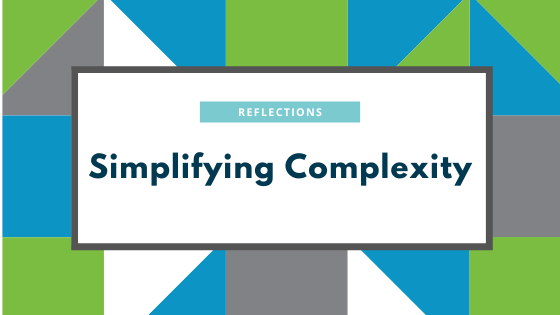On November 14-15, we attended the Public Health Association of BC Conference, “Simplifying Complexity”, to connect with our like-minded public health peers who are doing amazing work and listened to fascinating presentations. An always-inspiring two days, talks showcased work ranging from substance use and the overdose crisis, to food security and safety, to wicked problems in public health. Public health by its nature can be complex, with endless complexities which we grapple with every day. So this theme aptly linked to our work at the Foundation in trying to simplify and break down barriers by decoding public health, and shine a light on ways in which everyone can activate health.
In particular, there were 3 sessions that we found strongly linked to our work and values: racism and health equity, Pivot’s Project Inclusion, and the ROSE Initiative.
Racism & health equity
“Racism within institutions & society influences how opportunities for health & well-being are distributed.”
Sume Ndumbe-Eyoh, from National Collaborating Centre for Determinants of Health took us on a deep dive into how race and racism impacts health, through the lens of equity. By looking at the different levels and ways in which racism permeates our world (internalized, interpersonal, institutional, and systemic), and how it negatively impacts health and contributes to inequitable access to health for those who are Black, Indigenous, and people of colour (BIPOC).
Regardless of the health issue we’re addressing—chronic disease, mental health, food security—race and racism must be examined in order to adequately address it. Sume’s workshop was a necessary and important reminder of this; as we grow as an organization we’re determined to incorporate those learnings into our individual and organizational work. You can learn more about racism and health equity here.
Project Inclusion, a study by Pivot Legal Society
Project Inclusion is an in-depth study and report taken on by Pivot that looked at anti-homeless and anti-drug user stigma and how those prejudices play out in policies, practices, and laws. Presented by Caitlin Shane, Meenakshi Mannoe, and Dave Hamm, they discussed how stigma against marginalized populations is perpetuated through cultural, economic, political, and legal powers, and constantly reinforces itself.
For example, labelling of a person as a person who uses drugs (cultural) then cause a knowledge gap in the form of stereotypes and misinformation (economic), which leads to loss of status through attitudes and behaviours (legal), which influences our laws and policies (political). These forces act on one another to continue the cycle.
This impacts public health in clear and direct ways. Stigma against people who use substances and who are homeless creates barriers to accessing services like healthcare, it contributes to increased rates of HIV and hepatitis C, it’s a factor in food insecurity, social isolation, and the list goes on. This is where social determinants of health are critical in improving health and well-being for our entire population.
You can check out the full report and some great explainer videos about Project Inclusion here.
ROSE Initiative, BCCDC, University of Victoria, RainCity Housing, Solid Outreach
Zahra Mamdani, Lacey Mesley, and Paige Phillips took us through the importance of supporting experiential/peer workers in overdose response environments. Since the overdose crisis was declared in 2016 challenges faced by peers (or experiential workers in front-line environments have grown exponentially. The ROSE Initiative (Recognition, Organizational support, Skill development, for Everyone) is an intervention designed to directly support these workers.
After conducting a needs assessment, significant gaps were found in adequately supporting peer workers. For example, providing workers with business cards and photo ID—to many of us, these are assumed to be provided to us as part of our jobs and we take for granted the legitimacy they provide. For experiential workers, this is a huge stepping stone in having their life-saving work properly recognized. Other interventions include having formal job descriptions, first aid and CPR and other skill development, peer debriefing supports, and networking opportunities with other professionals.
In a time where peer workers are leading the charge on overdose response work and are everyday heroes in their communities, it’s unimaginable that these supports are not already in place. But, we’re thrilled to see these groups working together to ensure peer workers have their needs met. Read more about the ROSE Initiative here.
Though there were many more great talks, the areas that align with our current projects and priorities were definitely stand outs and left us feeling inspired and invigorated to get back to the office and continue our work. Thanks to PHABC for putting on this conference every year so all us public heath folks can convene, engage and be inspired.
Stay up to date with this conversation and so much more by signing up for our monthly newsletter, and following us on Twitter, Instagram, and Facebook.



